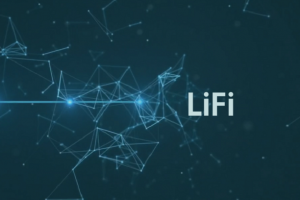Imagine a world where the Internet connection comes from a light source. And in this world, data transmission over the Internet is 100 times faster than data transfer via Wi-Fi today. This future is approaching.
The startup Velmenni (Tallinn, Estonia) presented a prototype of a LED light bulb called Jugnu, which is capable of transmitting data. The startup is currently working on creating an Android application for data transmission using light, according to the company’s website.
Another startup works in space, ByteLight, uses the power of LED light bulbs to transmit data in conjunction with the technology of tracking the location of customers in retail stores. If the store knows exactly what you are looking for when you are in the store, it can help you find the right product in real time.
Data transmission through Li-Fi

While Li-Fi or “visible light communication” is still largely the prerogative of university researchers and the choice of a few high-tech, futuristic start-ups, the industry in this respect is expected to grow significantly over the next five years. Currently, this market is $ 327.8 million and is expected to cost more than $ 8.5 billion by 2020. Li-Fi seems to be some kind of unreal, stunning, futuristic technology, but it has the potential to solve very real everyday problems. As more and more people around the world surf, the Internet, radio waves that are currently transmitting data are overloaded. Accordingly, data transmission is significantly slowed down.
Read also: How to free up space on your iPhone6
For example, try to go online at the airport? The needs of people on the network are increasing, they want to be able to watch video on their mobile devices. And the Internet of things shifts towards wireless communication for devices and gadgets that previously did not use the Internet, such as a refrigerator, car or coffee pot.
The number of light sources grows exponentially, unlike radio waves, and therefore there is the potential for an exponentially larger amount of data to be transmitted via Li-Fi than via Wi-Fi. “We have 1.4 million expensive inefficient cellular network stations, if you multiply that by 10,000, then you will end up with 14 billion. Fourteen billion is the number of light bulbs already installed,” says Harald Haas, professor of mobile communications at the University of Edinburgh, attributed the idea of Li-Fi.
In addition to providing wider access to data transmission, Li-Fi is safer than connecting via radio waves, Haas says. Light waves are not transmitted through walls. Therefore, if confidential data is transmitted through Li-Fi, they will not travel outside the room in which the light is lit.


